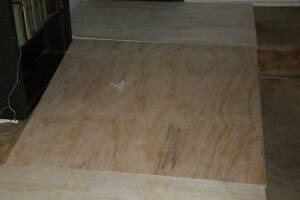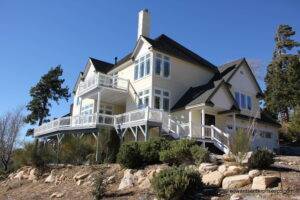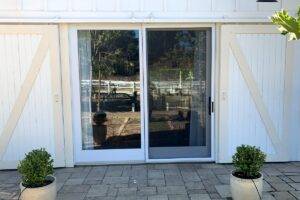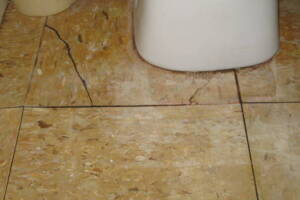The Edward's Enterprises company handles a variety of Fillmore rental property & REO repairs such as:
-
Property maintenance
-
Rental turn overs
-
Emergency call outs
-
After hours availability
-
Store electrical & lighting
-
One time service calls
-
Rental improvements
-
Vacancy renovations
-
“Hoarder” unit cleanouts
-
Rental hourly handyman work
-
Painting rental properties
-
Patching rental drywall
We take photos of service calls, & these can be provided on request to help support billing. Once work orders are assigned, we can schedule with you when key access is available, or directly with the tenant if possible.
Not sure if we can help with your rental property repairs? Call our office to discuss your property maintenance needs!
- Handy Tips
- Did You Know?
- Other Work
- DIY FAQs
To fix the smooth ceiling on your rental property, as part of your required regular maintenance & check-up, you'll want to keep a few materials on hand first : some paint stripper, plenty of tape, clear plastic, the right drywall compound, & crown molding. You'll also need to have the right kind of knife for your putty, & a nail gun would help as well. A ceiling texture scraper, a pry bar, some rubber gloves (worn), a utility knife & a drop cloth may also be handy here. & if you can add on a few more items, have also a sanding sponge & some tape measure with you, as well as a compound miter saw & wood chisel.
Start by using your sanding sponge to “smoothen out” that full ceiling, moving circularly & firmly across it. Then, you'll want to use that utility knife, next, to cut off any paper that's become 'loose' on the ceiling. Cut it, & let the rest of it peel right off – or use that putty knife (6 inch one is best) to scrape it away. Then, make sure the plaster & lath are perfectly secured to each other, fastening in some ceiling screws, if you need to. Then, you'll apply mud over the screws, in the thickest layer you can, by means of your putty knife & drywall compound.
The next step, then, is to apply a second coat, once the first one has dried entirely. Use the drywall compound, as well, to help you 'mud' any additional areas that have been repaired, & patches, too. If you notice any excess drywall compound, make sure to sand it down & then prime it, respectively.
Rent Control & Rent Stabilization are similar but different.
Rent stabilized & rent controlled properties are similar & are under the umbrella of rent-regulated housing. Following World War 1 communities began establishing rent regulation programs to balance a need to earn profits by the landlords while protecting tenants from excessive rent increases. California & New York lead the country in the number of cities & counties with some kind of rent regulation.
Some areas have -control & rent-stabilization programs, usually separating the programs based on the date of construction for the building. New York city buildings built before 1947 are rent-controlled, while those built between '47 & '74 are usually rent stabilized. San Francisco controls the rent on all buildings built before 1979.
Rent control can restrict the allowed reasons to ask a tenant to vacant, including an owner or family member move in or for major renovations of the building. Restrictions vary, some areas require landlords to pay a fee to move a tenant out to occupy or improve a rental unit. Rent stabilization helps keep tenants in place by allowing for at-will renewal of existing leases.
Rental rates & increases are restricted under both regulation programs. Rent stabilized units have more leeway for the property management to increase rents, including major capital improvements, adding services like a gym, etc. Rentals falling under rent control have rates determined by various government originations that can fix the percentage of the market rate allowed, or how much rent can go up each year. Owners may request to raise rates based on improvements or expenses, such as the soft retrofit improvements in the Los Angeles area.
What are unlivable conditions?
Some uninhabitable conditions for your tenants include naked & unsafe wires, holes in the floor, damaged air conditioning, & pests' infestations. It is essential to know your responsibility & that of the landlord, your rights as a tenant, & go through the terms of the agreement.
FAQ Source
How can I fix my cheap rental house?
There are seven simple ways to repair your rental house at low costs. These options are replacing the doors, adding a fresh coat of paint, pressure washes the house, landscape some materials, replace cabinet doors, add backsplashes, & install wood flooring.
FAQ Source

 We charge for all time allotted to a customer's project, including purchasing & delivering materials, or offsite work like painting lumber prior to an installation, or for the time to dispose of debris. This allows us to take on smaller projects for our property owner clients, rather than only lump sum projects with much higher minimums to show up.
We charge for all time allotted to a customer's project, including purchasing & delivering materials, or offsite work like painting lumber prior to an installation, or for the time to dispose of debris. This allows us to take on smaller projects for our property owner clients, rather than only lump sum projects with much higher minimums to show up.




 Most handyman requests get a 3 hour window of arrival, so plan on something like 8am to 11am, or 9am to 12pm, or even 12pm to 3pm window.
Most handyman requests get a 3 hour window of arrival, so plan on something like 8am to 11am, or 9am to 12pm, or even 12pm to 3pm window.